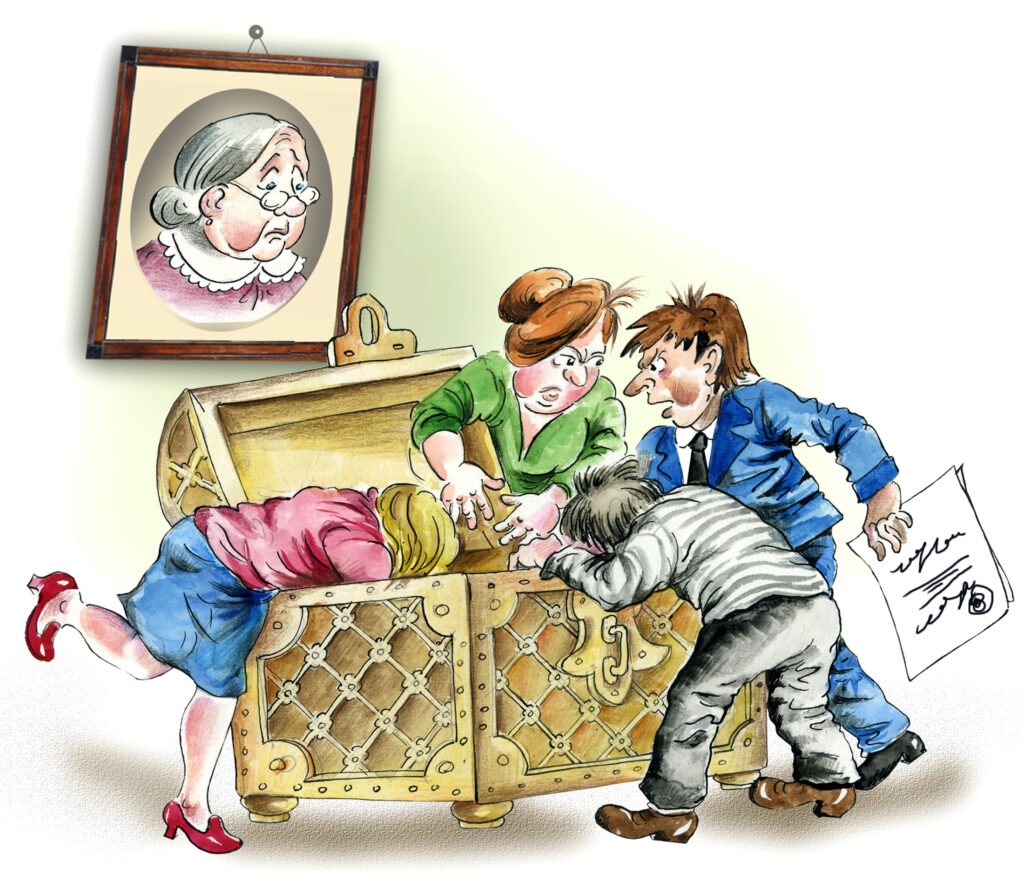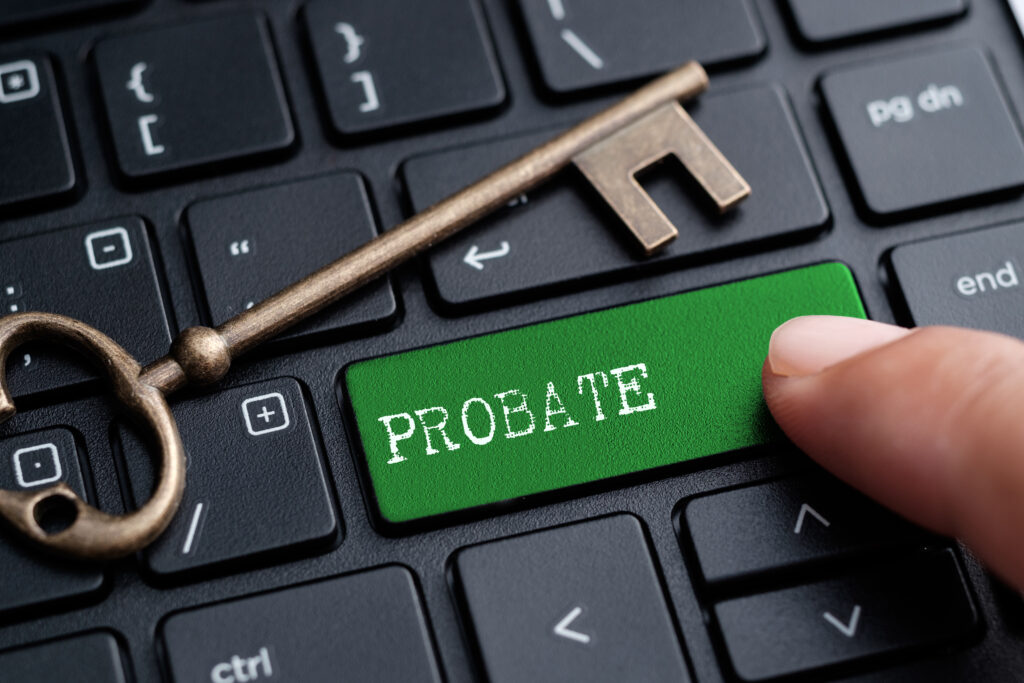Making a will is one of those things that millions of us keep putting off. We know it needs done, but it’s just not a palatable exercise. Thinking of the administrative process after your death is hardly top of the fun agenda for the weekend.
Even once you have a will in place, it’s important to review it regularly. Circumstances change and it’s easy for your instructions to become out of date without you realising.
A few hours invested in getting a properly drafted will can save heartache, confusion, arguments and thousands of pounds in legal fees. Once it’s done, you can pat yourself on the back for a job well done and enjoy the peace of mind in knowing that your affairs will be dealt with properly.
Why is making a will so important?
This is not just for old, wealthy people. A common perception is that a will is only needed when you expect to die with loads of money, but it’s far more important than that.
Whilst it certainly makes your intentions clear with regards to passing on your assets, it also sets out who should look after your children, if they’re under the age of 18. Much better to make your preferences clear than leave it to the courts to decide.

Making a will is important for more reasons than just money
Making a will also helps you express your funeral wishes, state any charitable gifts and legacies you’d like to make and leave instructions on how to deal with digital assets. Think of all those digital photographs and password protected documents.
You also appoint an “Executor” in your will, which is the person, or people, who will deal with all the administration. This can be a trusted friend, family member or a professional, such as a solicitor.
If you die without a valid will, it’ll be the state or local authority that ends up making these decisions. That usually involves delays, additional costs and plenty of frustration for your loved ones. And chances are the decisions made will not be in line with your wishes.
What happens if you die without a will?
This is where “intestacy” rules kick in and your affairs will be managed in accordance with the law, depending on your country of residence.
This really is something you want to avoid, for the benefit of your loved ones.
Without an appointed Executor, responsibility for managing your affairs will usually fall to your ‘next of kin’. Whilst there is no legal definition for this in the UK, the order of priority is:
- A spouse or civil partner
- Children, if aged over 18
- Parents
Your passing will be an emotionally stressful time for those you leave behind. To burden your loved ones with extra administrative tasks is probably not your intention. But that’s what could happen without a will.
Your spouse, civil partner and especially your parents, would appreciate not being held accountable for dealing with probate in what is already a difficult time.
If you have a partner that’s not a spouse or civil partner, you should note they are not your ‘next of kin’. Nor do they have any claim upon assets if there is no will on place.
What about your assets?
When it comes to your assets, the law will decide who gets what if you don’t have a will, regardless of your own wishes, or the expectations of your family.

Making a will can help avoid family arguments
The rules of intestacy are different throughout the UK, but in England and Wales, your spouse or civil partner would inherit everything up to £322,000. After that, additional assets are shared with children, if you have them. It’s more complicated if you’re not married or in a civil partnership. Remember, unmarried and non-civil partners are entitled to nothing.
In Scotland, your spouse or civil partner is entitled to “prior rights”. They’ll inherit your share of the house, up to the value of £473,000, furniture up to £29,000 and cash up to £50,000 if you have children, or £89,000 if you have no children. After that, it gets more complicated.
For those in Northern Ireland, the rules are different again.
You can visit this government website to find out how dying without a will might affect you, depending on your individual circumstances.
None of the rules contain provision for charitable donations or other tax efficient ways to pass on wealth. Therefore, another consequence of dying without a will can be unnecessary inheritance tax.
How much does it cost?
Making a will can be done with no cost at all, by using a service like Free Wills. Do take care, though. It’s easy to make an error that could invalid your will, so if there’s any level of complexity to your circumstances, it’s best to get some legal expertise. See further down for examples of when it’s best to get help.
Professionally written wills may cost around £100 for a single will or £180 for a joint ‘mirror’ will if your circumstances are straight forward. More specialist wills might cost £500 or more if you have businesses, overseas property or other complex affairs.
One service, which consistently receives excellent ratings from customers, is Farewill. They’ve been awarded National Will Writing Firm of the Year and can deal with probate and funeral services too.
Charitable Options
Many charities offer a free will writing service, in the hope that you might leave a legacy upon your death. This has the advantage of not costing you money now, but passing some of your estate to a cause you care about after you die. It could potentially reduce inheritance tax too.
The National Free Wills Network has 255 member charities and uses a network of 1,002 law firms to write will on behalf of donors. To take advantage of this, contact your favourite charity to ask if they are part of the network. If so, they can make a referral for your will to be drawn up by a participating local solicitor.
In November each year, you could also take advantage of the Will Aid campaign. Participating solicitors give their time for free and waive their usual fee for writing a basic will. Instead, they invite you to make a voluntary donation to Will Aid.
Finally, if you’re aged 55 or over, Free Wills Month happens in October. Again, this campaign partners up solicitors and charities to have wills written or updated, free of charge.
What are the key decisions when making a will?
Given that so many free will writing options are available, cost should not be a barrier. Deciding who should deal with your estate and how to distribute your assets can lead to procrastination, though.

A key decision when making a will is who should deal with probate
The key decisions you’ll need to make are:
- Your Executor: this could be your spouse, a family member, trusted friend, bank and / or law firm. Appointing a professional Executor will cost money after you die, but this will save loved ones picking up all the work at a difficult time.
- Your beneficiaries: who should receive your assets upon your death, including secondary instructions in case your preferred beneficiaries die before you.
- Specific legacies: personal items with sentimental value, or monetary gifts to individuals or charities
- Guardianship of children under the age of 18
- Funeral wishes and your preference of cremation or burial
If you already know your wishes in these areas, writing your will becomes easier.
When should you get help from a professional?
Enlisting the help of a solicitor is recommended for anything except the most straight forward of cases. The following scenarios would suggest it’s better to use a solicitor:
- You live with a partner, but are not married or in a civil partnership
- You share property with someone who is not your spouse or civil partner
- You want to make provision for a dependent who is unable to care for themselves
- Your permanent home is not in the UK, or you own overseas property
- There is a business involved
- You have stepchildren, previous spouses or other connection who could, potentially, make a claim on your will
A couple of hundred pounds invested in a well drafted will could save thousands in legal fees.
Summary
More than half of UK adults do not have a will, with most people leaving it until later life. Given the potential costs, time and stress of dying without a will, there is no good reason to delay.
This is one of the key steps in making financial arrangements to protect your family. Clarity and security for those we leave behind is a key element to financial wellbeing. Not only does it help your loved ones navigate your affairs if you die, it helps you enjoy financial peace of mind whilst you’re alive and well.




 Production
Production